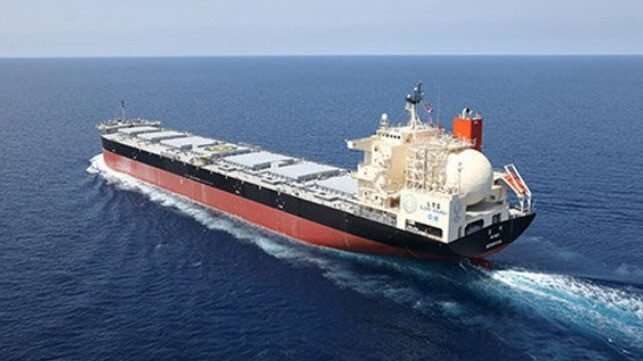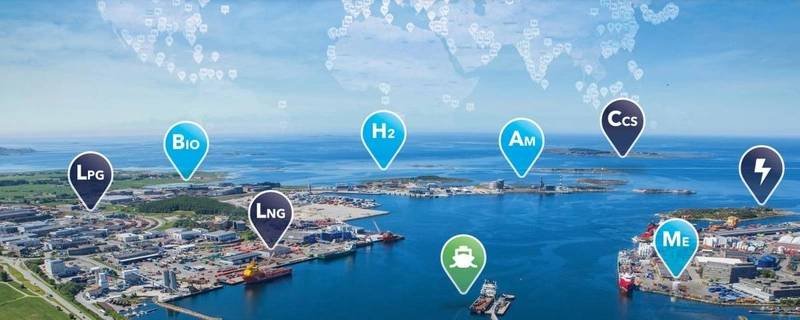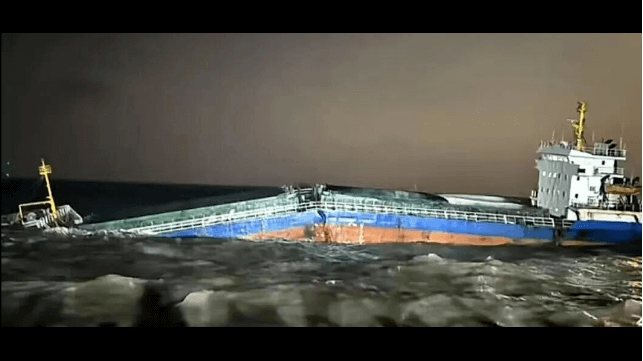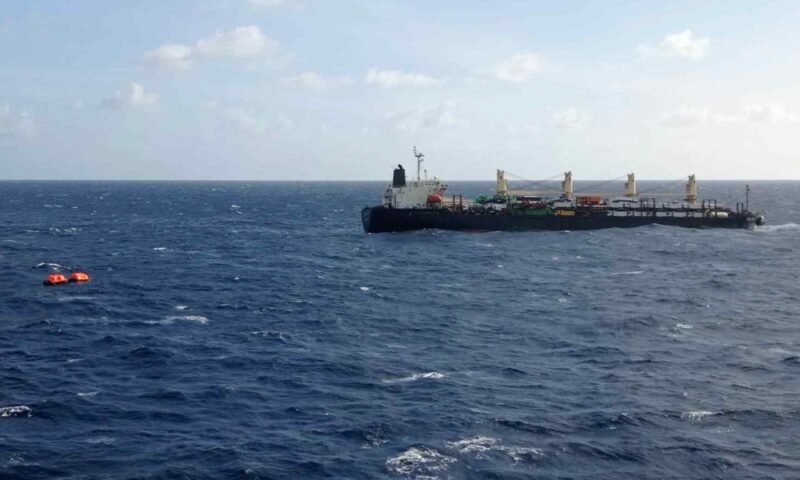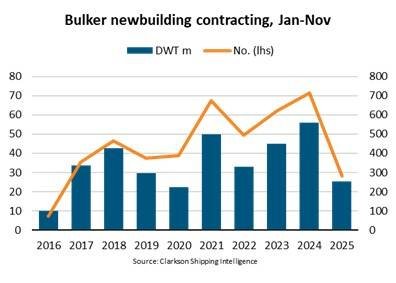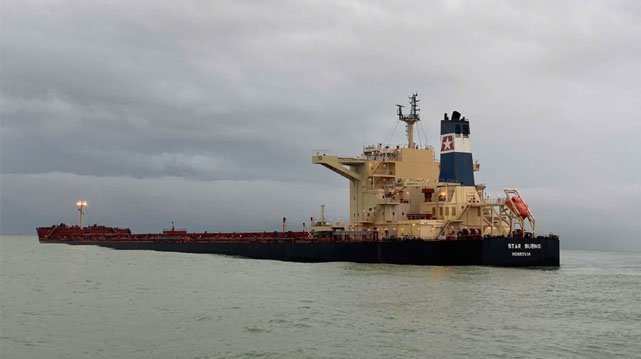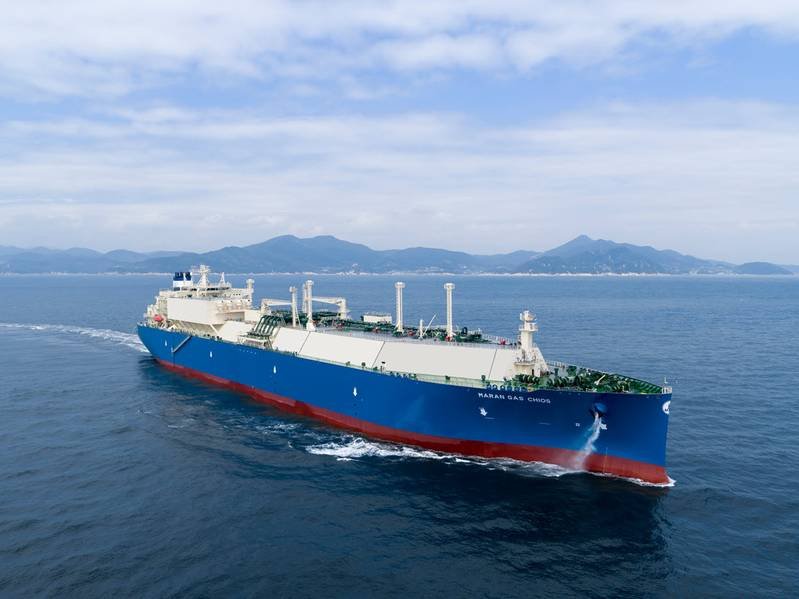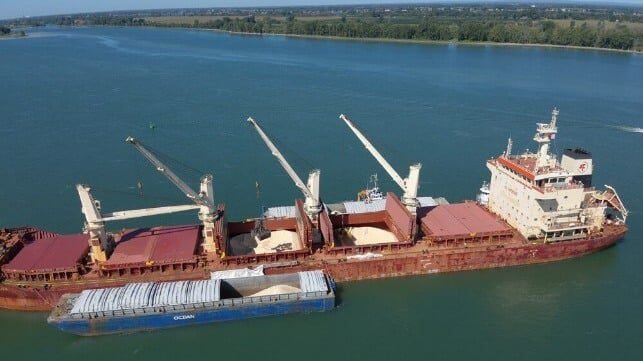A Japanese government-backed project has reported significant success in reducing unburnt methane emissions, known as methane slip, during tests on a bulk carrier operated by Mitsui O.S.K. Lines. The initiative, which began in 2021 under the auspices of the New Energy and Industrial Technology Development Organization (NEDO), aimed for a minimum 70% reduction in methane emissions. Methane, a potent greenhouse gas, poses a greater environmental threat than CO2 and takes longer to decompose, making its reduction a priority in climate action.
Developed by Hitachi Zosen and Yanmar Power Technology, the methane oxidation catalyst system is installed on the exhaust pipe, functioning similarly to SOx scrubbers. Initial land-based tests conducted in December 2023 achieved an impressive 93.8% reduction in methane slip at full load. The system also incorporates exhaust gas recirculation technology to further minimize unburnt methane and NOx emissions. These results were validated by ClassNK and reviewed by NEDO for ongoing support.
The project, now led by Kanadevia Corporation, aims to adapt the technology for onboard use on large LNG-fueled coal carriers. Testing began in May 2025 on the vessel Reimei, which was delivered in November 2023. During these trials, the ship achieved a remarkable 98% reduction in methane slip, surpassing both the project’s initial goal and previous land-based results, even under varying operational conditions. Ongoing evaluations will continue into FY 2026, with plans for commercialization by FY 2027.


